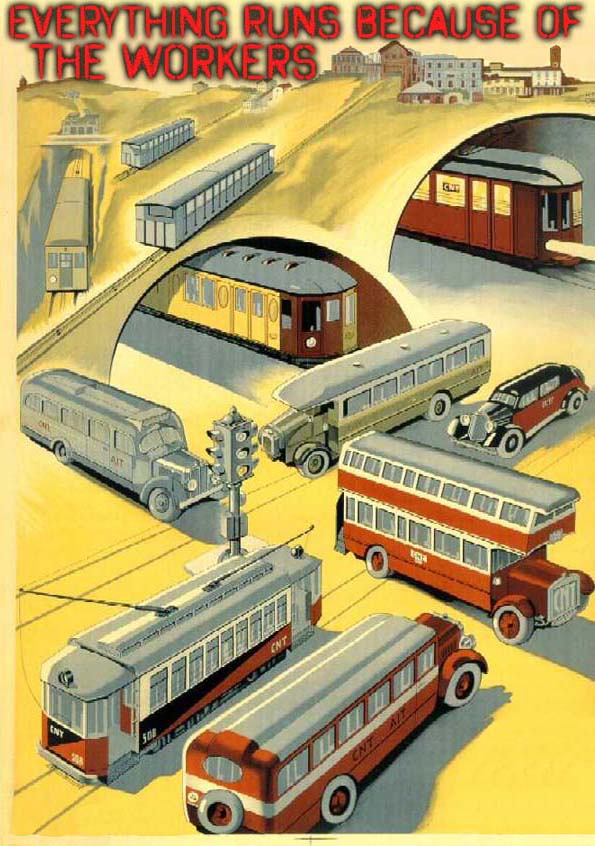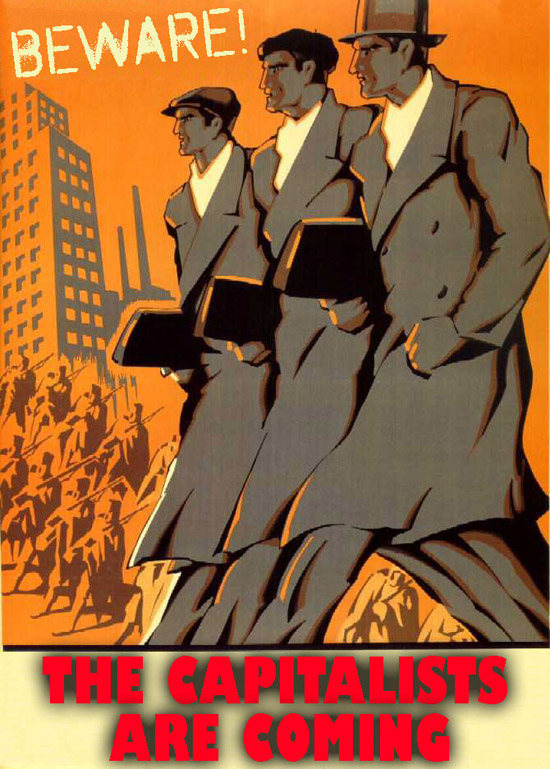|
|||||||||||||
|
Opposed to Human Happiness The System of Private By Punkerslut
The argument I'm presenting here will hopefully be clear and concise. The only thing I am trying to prove that human happiness is opposed to Capitalism, or any system where the means of production are owned and controlled by a very few compared to the whole of society. My argument is for Socialism: the idea that society better serves the needs of its participants when everyone has an equal voice in directing the economy's productive forces. My argument follows this basic reasoning... (1) Material existence, though not necessary to happiness, certainly helps better provide for it. You could compare sleeping on a bed versus a rock-hard surface, eating nutritious food versus having to live off of rice everyday, or being able to afford necessary medicine for family members versus having to watch them suffer. It is possible, in any of these cases, that the person who does not have the economic opportunity is happier than the person who does; in a sort of Thoreau-esque, rugged individualism. But, for the most part, each of us would imagine ourselves to be happier with the material existence. (2) There is an inequality of bargaining power between the Capitalist and the laborer; or the one who possesses the factories and mines against the one who creates, maintains, and works them. They need each other, yes, but the worker needs the Capitalist far, far more. This inequality of need, just like any situation where bargaining occurs, leads to an inequality of bargaining power -- and, similarly, an inequality of outcome. No worker can live without having some tools of production, but the majority of these tools are possessed by a very few. Herein leads to the inequality of bargaining power. This means that the laborer must be content to give away a portion of their production to the sustenance of the Capitalist. And, furthermore, it shall be up to the Capitalist to decide whether to plough the fields or harvest them -- whether or not the workers are able or hungry. Food will be destroyed or dumped into the ocean, for instance, when trying to sell it would lead to price declines or lessened profit.
(3) Take that material existence contributes to human happiness and that inequality of bargaining power leads necessarily to inequality of material existence. If we believe in human happiness as an ultimate end of society, then necessarily, it is within our duty to work towards the equalizing of bargaining power for all participants of society. Naturally, there is no way to have them completely equal, unless each person is an equal possessor of the means of production. This is not to say that everyone should be paid the same wage. It is only to say that society ought to be reorganized so that no person can live off of anyone else, and that each person has the right to claim the full fruit of their labors. This serves our ultimate purpose of human happiness, since it better provides for each member of society to receive according to their contribution, without being subjugated to a master of economy. Hence, Capitalism is opposed to human happiness.
Punkerslut,
|




